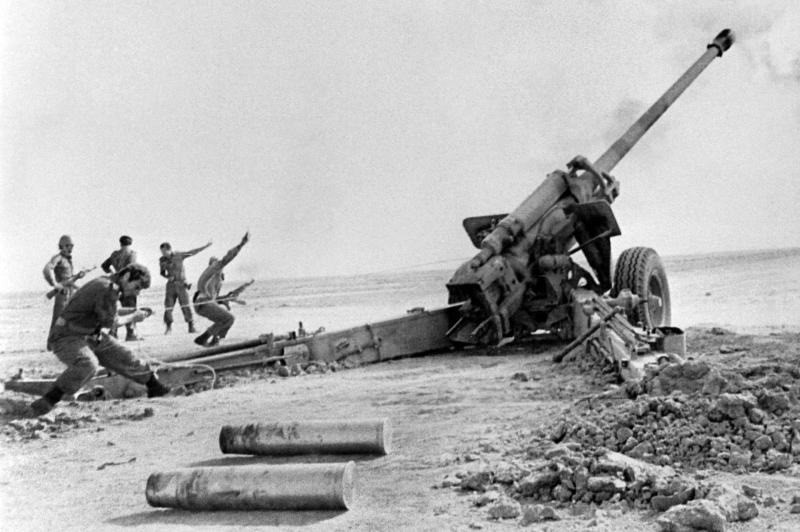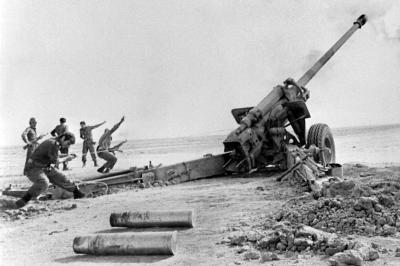In Iran, a contract text is being circulated that suggests the possibility of obtaining compensation from Iraq for the victims of the eight-year Iran-Iraq War. This contract is not between the people and the state's official institutions, but rather with a company said to be private. This development has raised questions on social media and among the public regarding the actual feasibility of Iran receiving such compensation. When it comes to war reparations, what figure are they discussing?
#### Military Toll
"During the 2888 days of the war imposed by the Iraqi regime led by Saddam Hussein against Iran, approximately 200,000 Iranians were killed due to air and missile attacks from the Iraqi army, three-quarters of whom were young people under 25 years of age, considered to be the productive generation in Iran. Additionally, around 320,000 Iranians, most of them military personnel or ordinary people, became disabled veterans, including approximately 130,000 who were exposed to chemical weapons." These figures were reported by the Iranian Tabnak network.
The war resulted in numerous injuries and disabilities for many combatants and civilians in the battlefields or due to attacks, reflecting only a small part of the human dimensions of eight years of war between the two neighboring countries. In a report by a committee of experts from the United Nations regarding the situation of war reconstruction in Iran in 1991, presented to the UN Security Council on two occasions, it was said that Iraq committed widespread destruction on Iranian territory, with the indirect damages estimated at $97 billion, according to the Iranian government.
Experts have indicated that even if only the $97 billion mentioned in the UN expert committee's report were paid, after 36 years, the compensation owed to Iran would reach $242 billion. "If we assume a decision or vote in favor of Iran, and Iraq also agrees to pay the reparations and starts this process; what figure are we discussing here?"
#### Compensation File and the Security Council
According to Iran's former ambassador to the UN and head of the acceptance team for resolution 598, Ali Khorram, regarding the UN Secretary-General's report at that time: "This report was recorded in the Security Council, and the Security Council did not have a decisive position of acceptance or rejection." The Security Council could have acted and issued a resolution, but that required good relations between Iran and the permanent members of the Security Council.
In this context, Mohammad Javad Zarif, Foreign Minister of Iran in the eleventh and twelfth governments, discussed resolution 598 in a conversation via the Clubhouse app, stating that condemning Iraq for starting the war was an achievement for the Islamic Republic in resolution 598. Kuwait managed to obtain compensation from Iraq, but there was no clause in resolution 598 regarding our compensation from Iraq.
On the other hand, Iraj Hemmati, a writer and researcher on the war, stated that "the political and diplomatic officials in the country, from the late President Hashemi Rafsanjani to former Foreign Minister Ali Akbar Velayati, as well as Foreign Minister Kamal Kharrazi, Iran's UN ambassador at the time, and his successor Mohammad Javad Zarif, did not declare anything regarding any written text or speech or conversation showing they hoped to apply paragraph 6 of the resolution related to the issue of reparations. Among these, Kharrazi clearly stated in an interview that based on resolution 598, reparations could not be obtained from Iraq."
#### Ways to Obtain Compensation
One of Iran's demands that prolonged the ceasefire was the payment of war reparations by Saddam Hussein's regime, but the latter did not comply with this demand. Ultimately, resolution 598 imposed did not take into account the text concerning the payment of war reparations by Iraq, limiting itself in paragraph 6 to appointing the party responsible for the conflict by the Secretary-General and referring it to the Security Council. The findings were raised to the UN Security Council, and paragraph seven emphasized the severity of damages and the need for reconstruction without indicating Iraq's role in providing reconstruction costs and compensating damages.
Under this resolution, a UN report recognized Iraq as the aggressor and a violator of human rights, placing the responsibility for the war on Iraq; however, there is obviously no mention of war reparations. In contrast, Security Council resolution 687, issued on March 26, 1991, following the former Iraqi Army's attack on Kuwait, addressed the issue of reparations.
In a special interview with Voice of America, international law expert and university professor Saeed Mahmoudi stated that to obtain compensation "the aggressor must be officially determined." In the case of the Iran-Iraq War, the Security Council did not do that.
In recent years, whenever the Iraqi government has shown a particular stance, some Iranian officials have mentioned the necessity of obtaining reparations; however, this issue is quickly forgotten, and it is unclear whether this idea is a campaign slogan for these figures or a serious matter.
#### Government Perspective
Commenting on the above, former and current Iraqi diplomats say: "We need to see if there is such a political conclusion fundamentally within the Iranian state, as pursuing such a demand could inflame national sensitivities in Iraq. Furthermore, Iran's allies in Iraq would come under significant pressure, potentially leading to anti-Iran sentiments rising, where extremists might dominate the political affairs of Iraq, resulting in a new round of antagonism from a country that currently maintains friendly relations with Iran. Therefore, considering that it is highly unlikely the Iraqi government would voluntarily agree to pay war reparations, the only way forward would be through the International Court of Justice in The Hague. This path is complex and lengthy, potentially taking many years even if it yields results."
Legal experts comment on this issue, indicating that "the legal complexities of such a case, such as determining whether damages during the period following Iran's entry into Iraq also include the period of reparations?" will be one of the issues that will delay this matter for a long time. Additionally, even a favorable ruling for Iran in international bodies and determining the amount of reparations is not the end of the road because if the Iraqi government lacks the political will to implement the ruling, it will not be enforced.
Moreover, lawyers note that many decisions made by The Hague have not been implemented and have remained mere ink on paper for decades due to a lack of political will from the condemned party. They add that given the current atmosphere in the international arena, the path to the Security Council adopting a resolution for these damages is not smooth. According to the report of the UN Secretary-General's expert team, it is extremely unlikely that a resolution obligating Iraq to pay for the damages of the attack on Iran will be issued, at least at this stage, or even in the near future.




